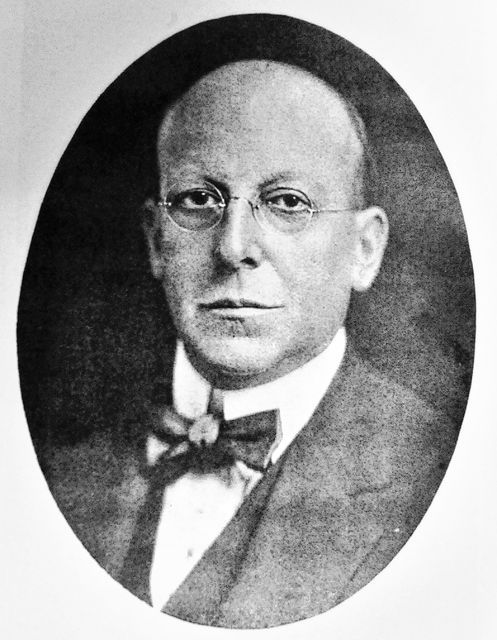Click here to subscribe today or Login.


When people in the Wyoming Valley looked skyward on June 4, 1924, they saw an amazing sight.
Inscribed against the sky 2,000 feet above the West Side were gigantic words, “Kirby Day.” This was, in the words of journalist Harrison Smith, “the first example of sky writing in this area.”
Few Americans end up with special days named for them, sky writing or not. But the community had deemed it fitting for Fred Morgan Kirby, the dime-store magnate who had become a benefactor of Wyoming Valley.
Kirby’s most recent gift was hundreds of thousands of dollars for land acquisition, facilities and a maintenance fund so that a big and beautifully landscaped park could be built on the West Side. In gratitude for his help with the ongoing project, the community named the new facility Kirby Park, the name it still carries.
So it was, on that June 4, a crowd estimated by the Wilkes-Barre Record at 40,000 filled the new park for a day of music, games, children’s events, airplane acrobatics, boat races and speeches. Kirby’s public-spiritedness was lauded by many, including the Rev. D.B. Jenkins, who recited a poem that ended “And generations coming/Will join the robin, lark,/And all unite in praising/The gift of Kirby Park.”
Kirby needed no introduction. As a young man he had come to Wilkes-Barre in the 1880s from Watertown, New York, with business partner Charles S. Woolworth, to open a store following the principle of low prices and self-service, a new trend in retail.
Within a few decades that little East Market Street emporium grew to a chain of hundreds of stores and had merged in 1912 with those of a rival to form F.W. Woolworth and Company, a national conglomerate with its iconic skyscraper headquarters in New York City.
Kirby Park was the frosting on the cake. The city of Wilkes-Barre built neighborhood parks since the early 20th century, all designed to give children recreation and adults relaxation from urban pressures. Even Public Square had become a green refuge in the middle of town.
Kirby Park was massive and landscaped by the famed Olmsted firm of New York. It featured a small zoo, an amphitheater, a reflecting pool and colorful gardens, along with a big cottage for the caretaker. It was the crown jewel of the city’s park system.
On June 4, the city spared no effort to make the day unlike any other. Schools and downtown stores closed so everyone could attend the festivities. Many of the larger industrial plants also closed, newspapers reported.
A parade of speakers, including Mayor Daniel L. Hart, praised Kirby. Balloons, 25,000 of them, inscribed “Kirby Day” were released, carrying the message far and wide.
The motive behind the gifts, Kirby told the crowd in his talk, was to help the community that had adopted him and responded so well to his retail business.
“Looking into the future I see Kirby Park as a place of rendezvous and recreation for old and young,” the Record quoted him as saying. He foresaw outdoor entertainment “so that a man and his wife and all his children can be entertained after church on Sunday and other times.”
The festivities went on until dark, concluding with “the most magnificent display of fireworks ever seen in the Valley,” capped off with a giant “good night” spelled out in the sky by the sky writing pilots.
For years afterward, the city continued to celebrate Kirby Day though, as the years went on, the event tended to take the form of a city council resolution rather than festivities.
The Kirby beneficence kept coming. Before Kirby died in 1940 he had endowed a public health facility known as the Kirby Health Center. In recent decades — among many other activities — the Kirby family brought to fruition the Kirby Center for the Performing Arts and the Kirby Center for the Creative Arts, on the campus of Wyoming Seminary in Kingston.
Kirby is remembered today as a creative genius of retailing and a major benefactor of the community. He is also recalled, according to the Wilkes-Barre Record, as the honoree on “one of the biggest events in Wilkes-Barre’s history.”





